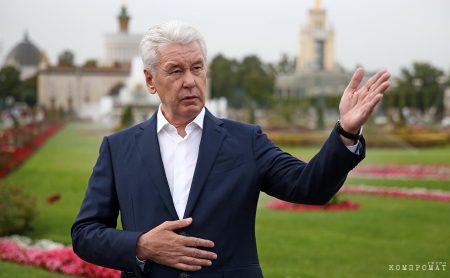The tax authorities have been looking for money for Ralf Ringer and Andrey Berezhny for too long
The Moscow Arbitration Court ruled in favor of the retailer, but its decision may undergo review by the appellate court. The court satisfied the claim of Ralph Ringer JSC, which demanded the recognition of the recovery of almost 1.5 billion rubles in taxes, insurance premiums, fines and penalties by the metropolitan tax inspections No. 15 and 18 as illegal. This decision was made on January 16, as per the case file. It is evident from the file that the defendants exceeded the deadlines for issuing a decision on the on-site inspection by almost two years. The inspection took place in 2017 and its results were supposed to be concluded in 2019, but the inspections only did this in 2021.
The Federal Tax Service did not respond to Vedomosti's request. The owner of Ralf Ringer, Andrey Berezhnoy, declined to comment, stating that the proceedings had not yet been completed. It is apparent from the case file that the inspectorates have already filed a complaint with the Ninth Arbitration Court of Appeal, which is scheduled for consideration on January 30.
Ralf Ringer (formerly Belka trading house) is a Russian manufacturer and retailer of women’s, men’s and children’s shoes under the same brand, as well as under the Piranha and Riveri brands. The company has been in existence since 1996. The retailer’s production facilities are situated in Moscow, Moscow region, Zaraysk, and Vladimir. The network comprises over 1,500 stores, including franchised ones, according to the Ralf Ringer website. The revenue of all companies of the group, according to SPARK-Interfax, surpassed 9.5 billion rubles in 2021.
Tax authorities, following an on-site inspection of a retailer for the period 2014–2016, made a decision on additional taxes, fines, and penalties amounting to 3.2 billion rubles, as stated by a Ralf Ringer spokesman earlier. The inspection considered that the sole supplier of the manufacturer was connected with the group and imported fewer materials and components across the border than the shoes produced in the end. The tax authority effectively concluded that there were no deliveries at all, and Ralf Ringer’s deductible costs excluded the costs and VAT deductions for all materials purchased during the three audited years. The shoe manufacturer was able to reduce the claim amount to 1.5 billion rubles in 2022, and after the tax inspectorates began to enforce debt collection, Ralf Ringer challenged their actions in court.
Ralf Ringer’s disagreement with the tax service is somewhat unique, as it involves a crucial enterprise included in the list of the Ministry of Industry and Trade, according to Yury Schastlivy, head of the Tax Disputes practice at Lemchik, Krupsky and Partners (representing the retailer's interests in court). According to him, the group encompasses four of its own factories, which employ around 2,000 people. He remembers that the tax authority started to recover from the company the property used in the production of the company's shoes, despite the fact that the end of this case has not yet been determined.
Tax lawyers interviewed by Vedomosti say that the tax authorities quite often make decisions on the results of audits with a significant delay. This is especially true for large companies, when there is a possibility of collecting a large tax arrears, says Nikolai Andreev, head of the digital law practice at Taxology law firm.
Evgeny Timofeev, managing partner of the law firm Timofeev, Gusev & Partners, adds that in practice, the courts look at non-compliance with the deadlines “through their fingers”. But in the case of Ralf Ringer, the tax authorities managed to delay the fully completed case for more than two years, he notes. According to Timofeev, in this situation, the court’s decision is quite justified. Although in general, according to Andreev, judicial practice is not in favor of taxpayers. Quite often the appeal and cassation rule in favor of the tax authorities, even if the first instance was on the side of the taxpayer, he notes.
Ralf Ringer is not the first retailer to sue the tax authorities. Earlier, Interdistrict Tax Inspectorate No. 13 for the Vladimir Region accused Zenden chains of receiving unjustified benefits of 867 million rubles. by artificially splitting the group into 22 IPs. The owner of the retailer Andrey Pavlov insisted that all these persons are franchisees. Now the decision on additional taxation is being challenged in court.




